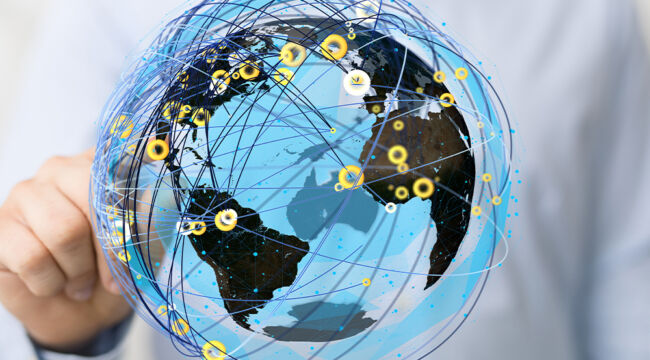War By Other Means
“Geopolitics is now geoeconomics impacting markets… and the rest is commentary.”
Here you have the measured and discernful conclusion of Rabobank’s Mr. Michael Every. More from whom:
Japan’s Kyocera already says China is no longer viable as the world’s factory due to U.S. technology restrictions, and that production there only makes sense to sell in China rather than to export from it. Bloomberg reports the Pentagon isn’t sure how to start stripping Chinese suppliers out of its production lines – but political pressure means it will try; Turkey denies exporting electronic equipment used by the Russian military as well… Meanwhile, the Netherlands is warning of Russian attempts to sabotage its energy infrastructure. Again, geopolitics meets geoeconomics meets markets, implying higher structural inflation as a tail risk, unless you “assume” it away.
In conclusion:
The common thread is an ongoing bifurcation of global supply chains which means higher structural inflation. Nobody is as cheap as China once was – including China.
We believe there is justice here. We put to one side the inflationary implications for the moment.
We center instead upon the more elemental dimensions — the very structures of economic organization.
The gothic complexity and “just in time” efficiency of international trade gobsmacks and staggers a man.
Mr. Leonard Read once bossed the Foundation for Economic Education. In this capacity he authored a bewildering account of the birth of one lowly pencil.
From the harvesting of raw materials to the refinement phase to the manufacturing phase, the entire process is a delirium of complexity and human cooperation very nearly inconceivable.
And that is to produce one mere pencil. Imagine then the miracle of producing, for example, an electric vehicle.
Elements such as cobalt and lithium must be shoveled out of the earth in Africa, South America and elsewhere.
They must be shipped off to be refined into serviceable components. Production generally occurs in Asia. from there the finished product — the vehicle — is often loaded onto an oceangoing vessel to be hauled overseas.
The entire process is something else. It would overmatch the greatest planner living or dead.
Yet here is the central dilemma of the globally harmonized operation:
It depends on an international system of relatively free trade. It does not function under an international trade regime riddled through with restrictive sanctions, warfare and other impediments. Consider…
The nations of Russia, Belarus and Ukraine — combined — lead the world in the production of:
Natural gas. Uranium. Neon. Processed nickel. Semi-finished iron. Wheat. Fertilizer. Potash.
These three nations, combined, are the world’s second-largest producers of:
Crude oil. Refined oil products. Platinum group metals. Refined copper. Steel. Seed oils. Ammonia. Sawn wood.
These three nations, combined, are the world’s third-largest producers of:
Coal. Aluminum. Gas turbines. And titanium.
That is: This eastern European troika ranks first, second or third in producing the world’s 20 most critical resources.
From these resources spring the automobiles, semiconductors, “smart” phones, electronic gadgets of every model and make, appliances, foods and nearly every item upon which we rely.
These three nations are either under severe sanction or in one case… invasion.
Where then will the world acquire these products in adequate quantities?
And how will the world produce adequate quantities of automobiles, semiconductors, “smart” phones, electronic gadgets of every model and make, appliances — and foods?
Examples multiply and multiply.
Under peaceful conditions, the entire business functions as a finely tuned clock functions.
We employ the word “finely” with conscious deliberation.
While extremely efficient under optimal conditions, the current international trade regime is deeply fragile and delicate.
It is extremely vulnerable to disruption.
It is the spider’s intricate web. And like the spider’s web, it is as thin as gossamer. It can be very easily undone… and wrecked beyond hope of repair.
What will replace it? And how long will it take to spin a fresh web?
We are not in possession of the precise answers. Yet we hazard the world may not especially cherish the answers.



Comments: